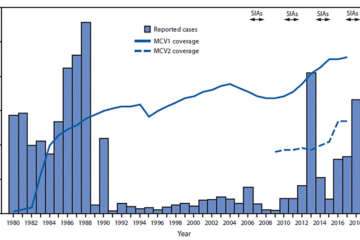Pakistan: Sindh Province tightening domestic COVID-19 curbs as of June 24 amid ongoing nationwide measures /update 69 – Crisis24

PAK 5 NEWS
Event
Officials in Sindh Province are tightening domestic COVID-19 controls due to increasing cases. Residents must wear facemasks and maintain social distancing in public places. Public transport will function at a maximum of 70 percent occupancy, while entry to high-risk areas such as retail centers, religious sites, and gyms will be limited to fully vaccinated individuals. Indoor and outdoor gathering limits will be 300 people, and 500 people, respectively. The rules apply to Hyderabad and Karachi; additional areas may be affected in the coming days based on disease activity.
Eased domestic COVID-19 rules continue in other parts of Pakistan. Unvaccinated individuals above 15 years old may not board domestic flights or enter public facilities, such as schools, religious venues, and shopping malls. International travel measures are also in place. Authorities are mandating on-arrival rapid antigen testing for a random portion of inbound passengers on every flight from the Middle East. The system is in response to new COVID-19 subvariants; the rule will affect Islamabad (ISB), Karachi (KHI), and Lahore (LHE) international airports until further notice. Random testing will continue for other international entrants as a surveillance measure.
Domestic Measures
Local governments in some areas experiencing higher COVID-19 activity may implement localized enhanced curbs, such as shortened operating hours and lowered capacity limits for public facilities and vehicles. Locals may protest measures affecting business activity, religious services, and public movement, particularly in urban centers. Clashes between demonstrators and police are possible.
Violators of ongoing restrictions may be subject to fines and arrest. Reports indicate generally poor adherence to and enforcement of guidelines nationwide.
International Travel Restrictions
Passenger flights remain limited due to low demand and travel restrictions by foreign governments on Pakistani citizens and air carriers. Cargo, charter, and repatriation flights are operational. Inbound passengers must submit a health declaration form online or via the Pass Track mobile application within 48 hours before arrival. Incoming non-Pakistani citizens must hold proof of completing vaccination if above 18 years old. Individuals who are over 12 years old and are not fully vaccinated must present a negative result from a PCR test taken within 72 hours before the flights. Deportees must undergo a rapid antigen test on arrival; travelers who return a positive result from the test must quarantine at their residence for 10 days.
Pakistani passengers aged above 15 years old require vaccination certificates to board domestic or outbound international flights. The rule does not apply to the medically exempted, foreigners taking outbound international flights, or Afghan citizens exiting via land borders. Foreigners aged below 18 years old, and those who entered Pakistan before Oct. 1, also do not require a vaccination certificate for domestic flights.
Most land border crossings with India and Iran remain closed, except for limited cargo transport, permitted passenger travel, and repatriation. Authorities allow most border crossings with Afghanistan to operate, though Pakistani officials may require Afghan nationals above the age of 12 permitted who enter through land borders to produce a negative result from a COVID-19 PCR test taken within 96 hours before arrival. Cargo transit continues to face intermittent disruptions, especially along the Afghan border.
Advice
Confirm travel arrangements. Follow all official instructions. Abide by national health and safety measures. Reconfirm all business appointments, deliveries, and travel arrangements. Liaise with trusted contacts for further updates and guidance. Maintain contact with your diplomatic representation. Ensure contingency plans account for the recurrence of disruptive measures. Reconsider and reconfirm nonemergency health appointments. Ensure access to essential items. Heed security and traffic advisories.
Resources
World Health Organization (WHO)
Government of Pakistan COVID-19 Portal








